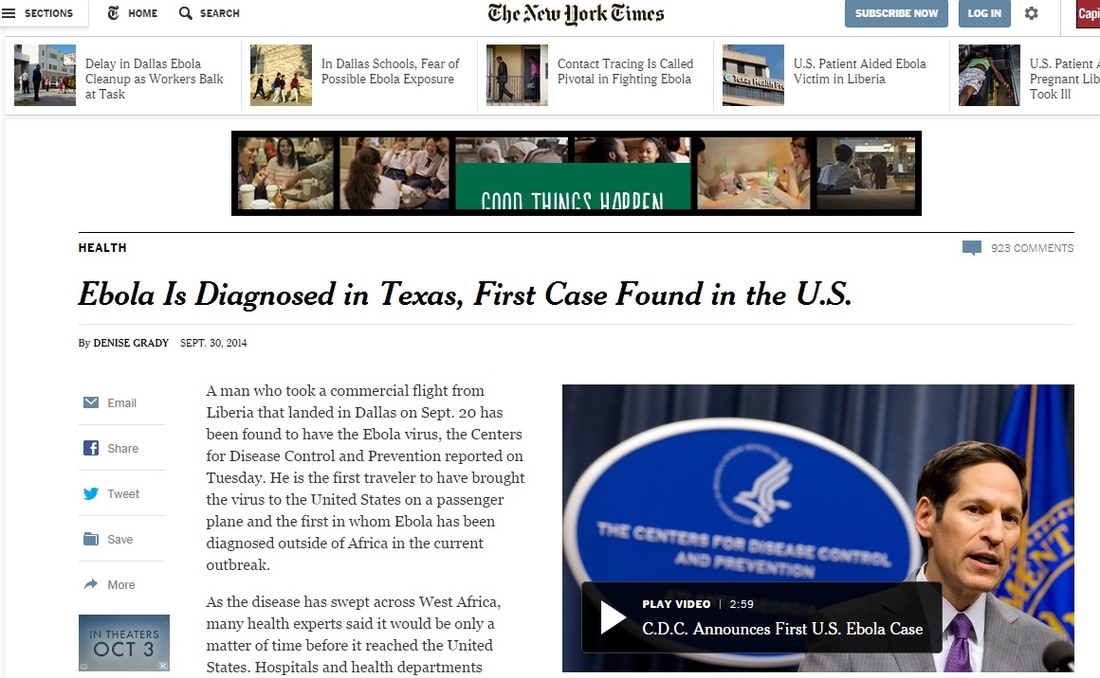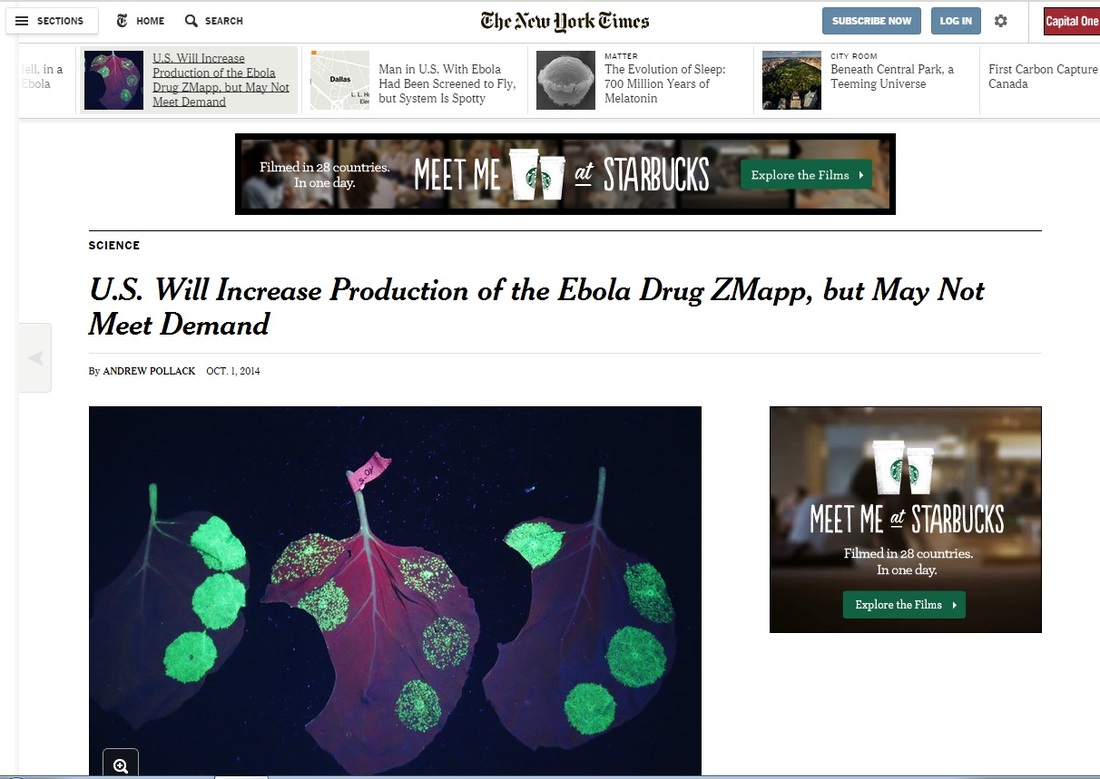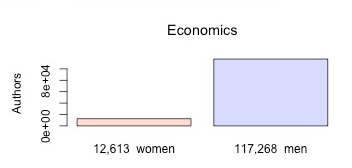July 30, 2014:
September 30, 2014:
October 1, 2014:
The idea that some lives matter less is the root of all that's wrong with the world.
-Dr Paul Farmer
The outbreak is terrible and far from over, especially in Liberia and Sierra Leone. Donate to Partners-in-Health, a reputable organization founded by Farmer and Dr Jim Yong Kim that prioritizes healthcare for poor people. They are leading a coalition and working alongside two grassroots healthcare organizations in each country.
Hat tip: Mom.






 RSS Feed
RSS Feed